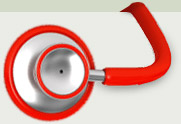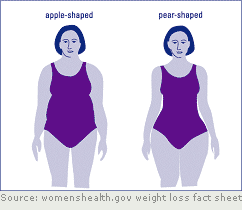
4 Important tests for keeping your heart healthy
Posted in Health & Wellness on April 16, 2012. Last modified on April 15, 2020. Read disclaimer.
The following 4 tests will help you know "your numbers" which is important for preventing heart disease.
1. Blood pressure
Over time, high blood pressure can lead to heart disease. Unfortunately, high blood pressure often displays no early symptoms so regular testing is important.
Recommendation: Have your blood pressure tested every 2 years if you have normal blood pressure (lower than 120/80) or once a year if your blood pressure is above normal but still below 139/89. Discuss treatment options with your doctor if your blood pressure is 140/90 or higher.
2. Cholesterol and triglyceride
High cholesterol levels can lead to atherosclerosis (clogging and hardening of the arteries) and heart attack. High triglyceride levels (another form of fat in the blood stream) has also been linked to heart disease in some people. High cholesterol and high triglyceride levels often display no early symptoms so testing is important. If diet and exercise are not effective at controlling cholesterol and triglyceride levels, medication may be needed.
Recommendation: At least once every 5 years (lipoprotein panel). If other risk factors for heart disease are present, more frequent testing may be required so consult with your doctor.
3. Blood glucose
Persons who have diabetes or are at risk for diabetes should make certain that blood sugar levels are being controlled (close to normal) in order to reduce the chances of heart, eye, kidney or nerve damage.
Recommendation: If you have diabetes or are at risk for developing diabetes, request an A1C test from your doctor at least twice a year. This reveals how much sugar has been sticking to your red blood cells over the past 3-4 months. If your test results are beyond the normal range, an A1C test every 3-4 months is advised in addition to self-testing and recording your glucose 2-4 time per day.
4. BMI
Being overweight or obese has been associated with an increased risk for heart disease, stroke, type 2 diabetes, high blood pressure and a many other health problems. But, in addition to the amount of excess weight a person is carrying, where it is stored in the body may also affect health.
Recommendations:
 1)
Enter your height and width into the online BMI (Body Mass Index) calculator available at the National Heart, Lung, and Blood Institute to get an indication of whether you are within your healthy weight range. This site also offers tips on eating right, becoming physically active and more.
1)
Enter your height and width into the online BMI (Body Mass Index) calculator available at the National Heart, Lung, and Blood Institute to get an indication of whether you are within your healthy weight range. This site also offers tips on eating right, becoming physically active and more.
2) Assess your body shape: Comparing yourself to the graphic at right, would you be considered to have a body that is "apple" shaped (tend to carry excess weight around the waist) or "pear" shaped (tend to store fat in the hips and buttocks)? Apple shaped body types may be at a greater risk for developing weight-related health problems, regardless of the BMI results. Not certain which type you are? Women with a waist measurement in excess of 35" and men with a waistline in excess of 40" tend to be apple shaped.
You may also be interested in reading: What's your risk of developing heart disease
Sources (Accessed April 16, 2012)
http://www.womenshealth.gov/publications/our-publications/fact-sheet/heart-disease.cfm
http://womenshealth.gov/heart-health-stroke/heart-disease-risk-factors/
http://www.ncbi.nlm.nih.gov/pubmedhealth/PMH0001900/
http://www.healthy-firefighter.org/heart-basics
http://healthfinder.gov/prevention/PrintTopic.aspx?topicID=14
http://www.nhlbi.nih.gov/health/health-topics/topics/hd/
http://www.nhlbi.nih.gov/health/health-topics/topics/hf/
http://www.nhlbi.nih.gov/health/health-topics/topics/cad/livingwith.html
http://www.cdc.gov/diabetes/pubs/tcyd/ktrack.htm
http://www.cdc.gov/women/heart/
http://diabetes.niddk.nih.gov/dm/pubs/A1CTest/
http://fha.maryland.gov/pdf/oralhealth/fact_sheets/Heart_Disease_and_Your_Oral_Health.pdf
http://www.ncbi.nlm.nih.gov/pmc/articles/PMC2845795/
http://www.foh.dhhs.gov/library/letstalk/Fall2002.pdf
http://ladiesfirstproviders.vermont.gov/heart-health/cycle/conduct-exam
http://ndep.nih.gov/media/know-your-diabetes-bs-numbers-2pg-bw.pdf
http://womenshealth.gov/publications/our-publications/fact-sheet/overweight-weight-loss.cfm
http://womenshealth.gov/screening-tests-and-vaccines/
http://www.warrelatedillness.va.gov/education/factsheets/preventative-healthcare.pdf
http://win.niddk.nih.gov/publications/tools.htm#circumf
 Test your smarts about aging?
Test your smarts about aging? Take our heart smart mini quiz
Take our heart smart mini quiz Heart health and Vitamin C
Heart health and Vitamin C How to prevent computer strain
How to prevent computer strain Are eggs heart-healthy or harmful?
Are eggs heart-healthy or harmful? Tips for avoiding constipation
Tips for avoiding constipation Ways to support our troops
Ways to support our troops What's YOUR risk of heart disease?
What's YOUR risk of heart disease? 4 Important heart health tests
4 Important heart health tests Healing properties of chamomile tea
Healing properties of chamomile tea Prevent menopausal weight gain
Prevent menopausal weight gain Health dangers of sedentary lifestyle
Health dangers of sedentary lifestyle
